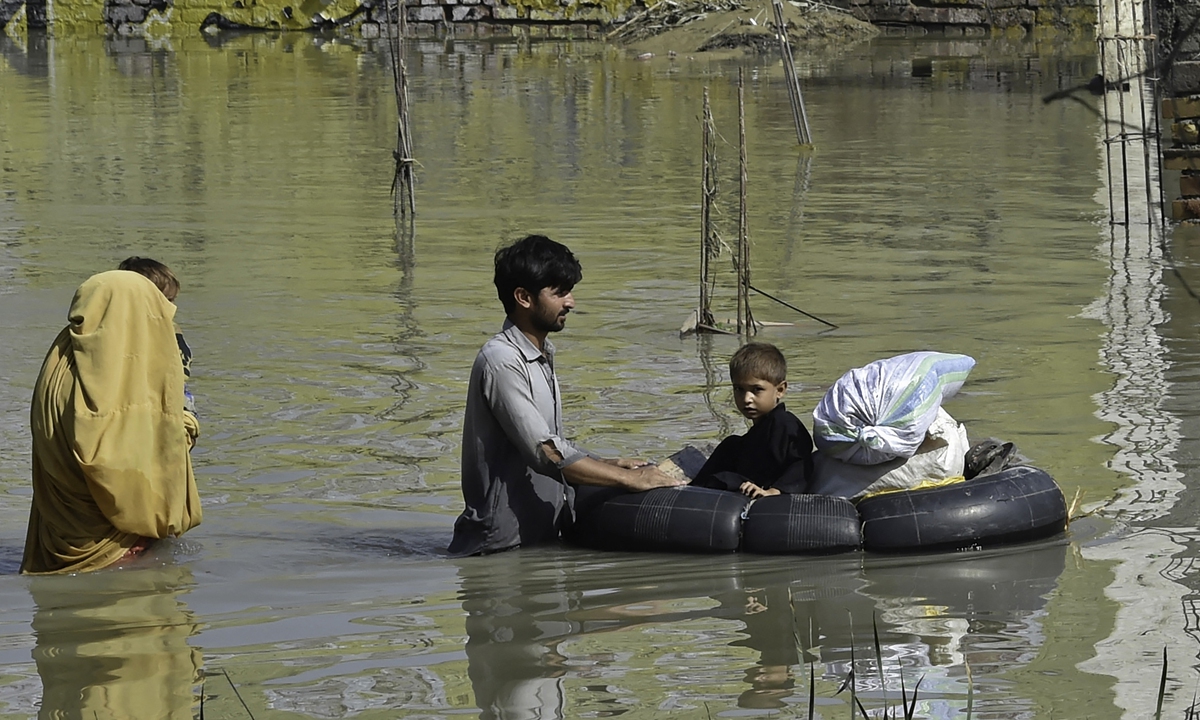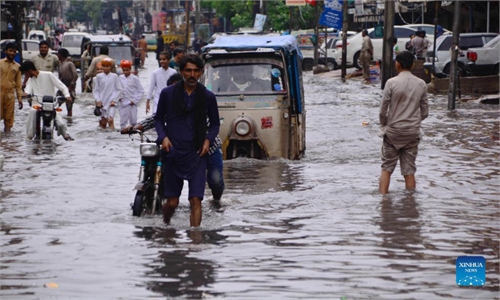Pakistan floods death toll rises
Monsoon rains ‘unprecedented in last 30 years’: Sharif

A family wades through a flood-hit area following heavy monsoon rains in Charsadda district of Khyber Pakhtunkhwa, Pakistan on August 29, 2022. Photo: VCG
Tens of millions of people across swathes of Pakistan were on Monday battling the worst monsoon floods in a decade, with countless homes washed away, vital farmland destroyed, and the country's main river threatening to burst its banks.Officials say 1,061 people have died since June when the seasonal rains began, but the final toll could be higher as hundreds of villages in the mountainous north have been cut off after flood-swollen rivers washed away roads and bridges.
The annual monsoon is essential for irrigating crops and replenishing lakes and dams across the Indian subcontinent, but it can also bring destruction.
The flooding in 2022 has affected more than 33 million people - one in seven Pakistanis.
"What we see now is an ocean of water submerging entire districts," Climate Minister Sherry Rehman told AFP on Monday. "This is very far from a normal monsoon - it is climate dystopia at our doorstep."
The 2022 floods are comparable to those of 2010 - the worst on record - when more than 2,000 people died and nearly a fifth of the country was under water.
Prime Minister Shehbaz Sharif, on a tour of the north to oversee relief operations, said the monsoon rains were "unprecedented in the last 30 years."
Near Sukkur, a city in southern Sindh province and home to an aging colonial-era barrage on the Indus River that is vital to preventing further catastrophe, one farmer lamented the devastation wrought on his rice fields.
Millions of acres of rich farmland have been flooded by weeks of nonstop rain, but now the Indus is threatening to burst its banks as torrents of water course downstream from tributaries in the north.
Much of Sindh is now an endless landscape of water, hampering a massive military-led relief operation.
"There are no landing strips or approaches available... our pilots find it difficult to land," one senior officer said.
The army's helicopters were also struggling to pluck people to safety in the north, where soaring mountains and deep valleys make for treacherous flying conditions.
Many rivers in Khyber Pakhtunkhwa province - which boasts some of Pakistan's best tourist spots - have burst their banks, demolishing scores of buildings including a 150-room hotel that crumbled into a raging torrent.
The government has declared an emergency and appealed for international help, and on Sunday the first aid flights began arriving - from Turkey and the UAE.


